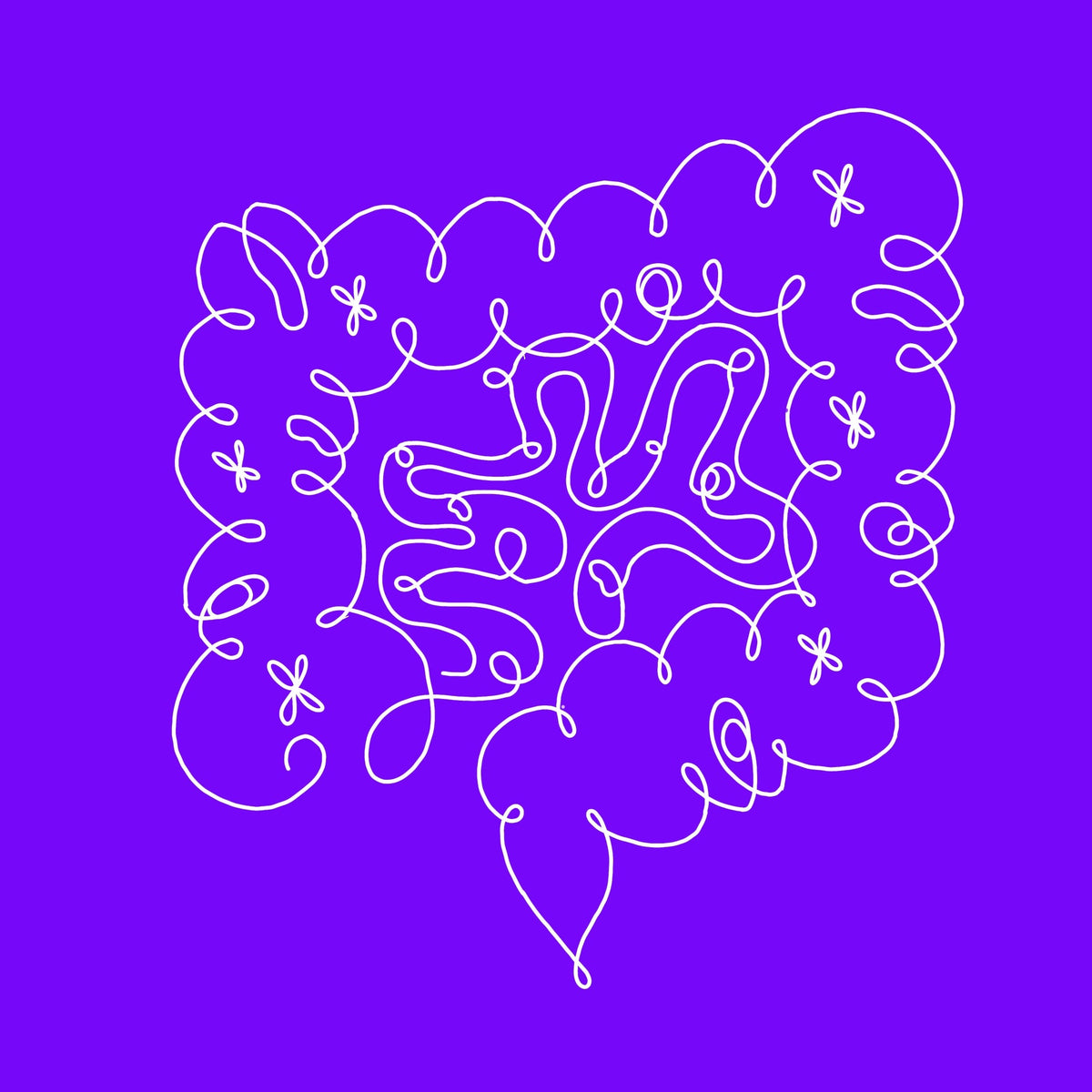
gut health and your period
|
|
Time to read 2 min
|
|
Time to read 2 min
You’re feeling a little sluggish, you can’t seem to focus at work and you feel as if there’s a dark cloud hanging over you. To top it off, your belly is bloated and you’re wondering if the slice of toast you just made is a bad idea. It’s period time. I’m sure most of us have been there.
Understanding the intricate connections between your gut, brain and reproductive system could help you find ways to improve your digestive health, and in turn alleviate your period symptoms. This week, I’ll be delving into the delicate balance between your gut microbiome and your monthly cycle.
Your gut, also known as the gastrointestinal tract, consists of multiple organs, and starts at your mouth then goes all the way down to your bum. However, when people talk about the gut, they’re usually referring to the stomach and intestines which help us digest food.
Residing in the intestines are approximately 100 trillion microorganisms, which is about 10 times the number of ‘human’ cells in the body! This collection of intestinal bacteria is known as the gut microbiome. The gut microbiome does all sorts of things, but a key function is part of the gut-brain connection, because it influences neurotransmitters and hormones.
Neurotransmitters are the electrical messengers that allow neurons in the nervous system to communicate. Hormones are the chemical messengers transported in our blood, which allow cells to communicate. So basically, these are the reactions that keep our body talking with itself; it’s this communication system between the gut and the brain that influences our mood, sleep, immune function, inflammation and hormone balance.
The gut microbiome has a big impact on hormone regulation. This includes oestrogen, progesterone and testosterone, which are known as the sex hormones. These hormones influence activity within our reproductive system, including releasing eggs from our ovaries, regulating the uterus and triggering menstruation.
The gut bacteria also affect stress hormones, such as cortisol and adrenaline. These hormones are key to regulating activity within the nervous system and the immune system, such as fighting off infections and controlling blood pressure. Perhaps most key to periods is the gut’s effect on oestrogen levels and the way the body processes oestrogen, which in turn can contribute to PMS, period pain and other menstrual symptoms.
The foods we consume are the same foods that our gut bacteria eat. Consuming a diet that includes colourful fruits and vegetables, is a great place to start. Vibrant foods are rich in antioxidants, which can help maintain the balance of gut bacteria. Fruits and vegetables also provide fibre and prebiotics, which “good” bacteria need to thrive.
Reducing refined sugar and carbohydrates is also very important, for example white bread and pasta. These types of foods are low in fibre, and tend to feed the “bad” bacteria, which can lead to an imbalance in your gut known as dysbiosis. Unprocessed complex carbohydrates are a better option, for example lentils, quinoa, oats and leafy greens.
Finally, consuming probiotic-rich foods can be a game-changer for menstrual health. Natural yoghurt, sauerkraut, kimchi, kefir and kombucha are all great sources for probiotics. So look after your gut, and hopefully your period health will improve.
Latest News